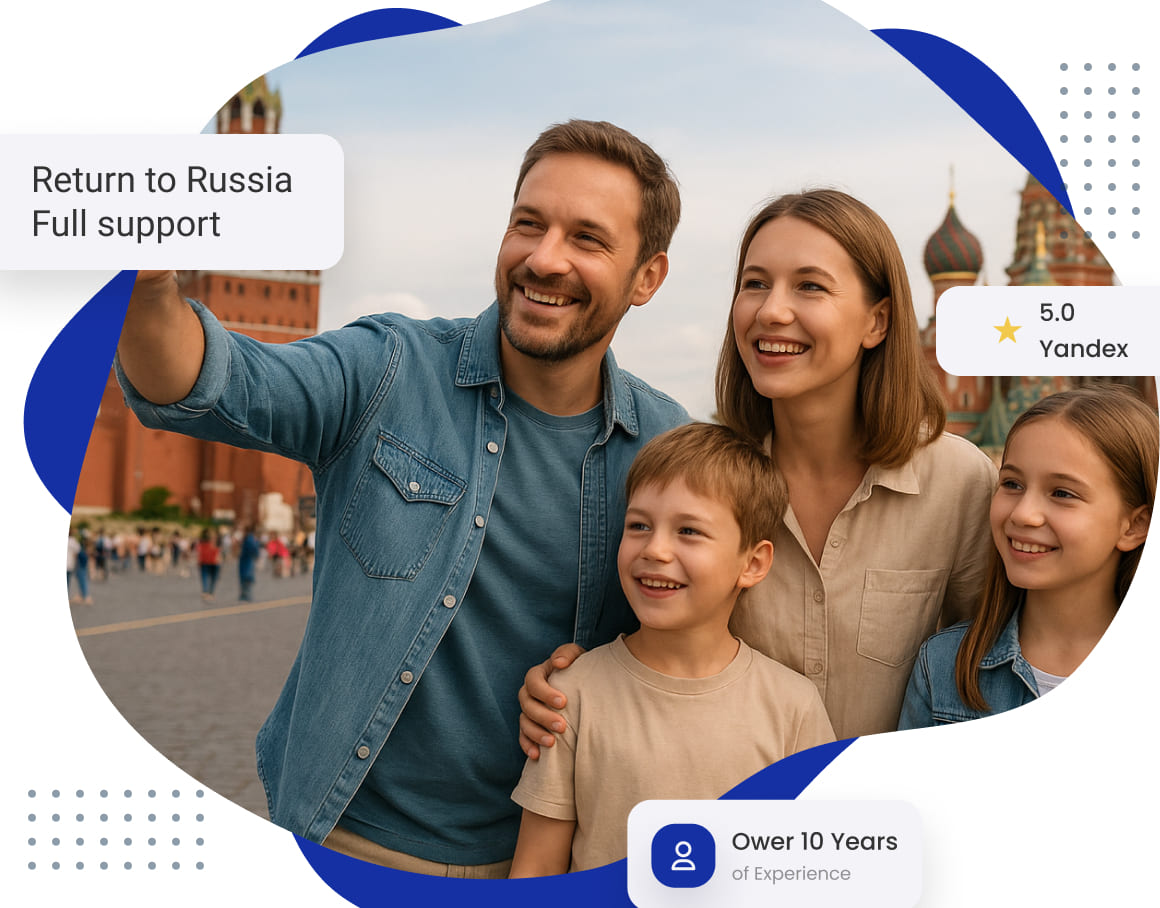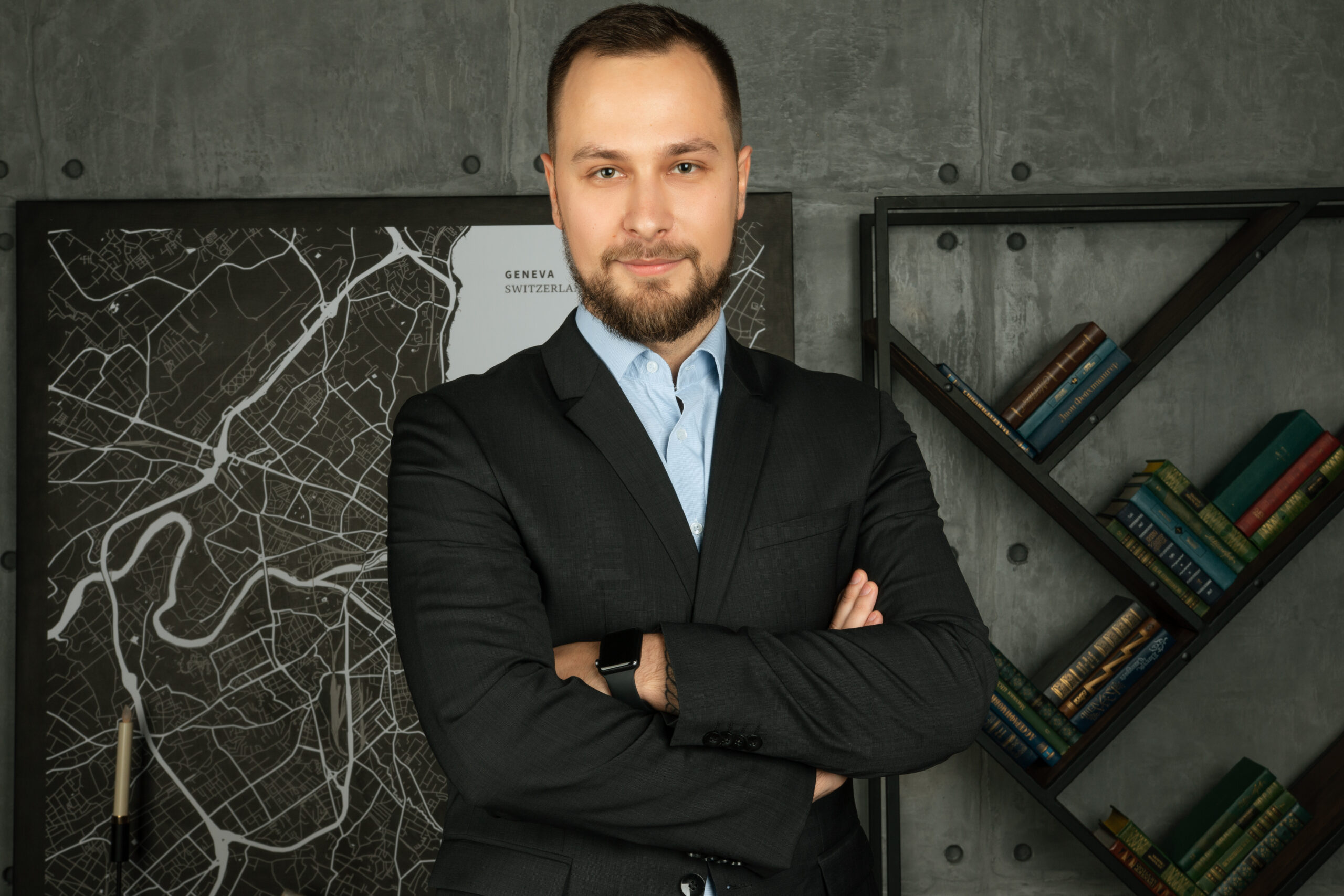Returning to Russia from the USA

Returning to Russia: A Comprehensive Guide for U.S.-Based Compatriots
Russia has modernized its migration framework to make coming home more straightforward for people with Russian roots. Alongside the long-running State Program for the Resettlement of Compatriots (2006), a new legal track—the “repatriate” status introduced by Presidential Decree No. 872 on November 22, 2023—now operates in parallel. Together, these two pathways cover very different life situations. One offers structured integration and regional support; the other prioritizes flexibility and speed. This guide explains how each works, who qualifies from the United States, what documents you’ll need, how the timeline typically unfolds, and where applicants most often stumble.
The Two Tracks, Side by Side
State Resettlement Program (2006–present) is the classic route intended to reunite Russia with its diaspora and strengthen specific regions. Participants choose a host region that is implementing the program, move there, live and work in that region for at least three years. In return, regions provide an integration “package” that may include reimbursement of travel costs, a one-time settlement payment, unemployment support, and, in some cases, subsidized housing or preferential lending. The trade-off is commitment: the program expects participants to anchor in the chosen region and (with limited exceptions) demonstrate Russian-language proficiency through a test or accepted education documents.
Repatriation (Decree No. 872, in force since 2024) is a newer status. It’s an easier, more flexible lane inside the same state framework. Repatriates do not have to pass language, history, or law exams and may relocate to any region in Russia—including those that don’t participate in the State Program (e.g., Moscow, Moscow Region, Saint Petersburg). The flip side is financial: the generous regional payments and many resettlement benefits don’t apply by default, unless a region separately decides to support repatriates. In other words, more freedom, fewer subsidies.
Both tracks lead to simplified acquisition of Russian citizenship compared with ordinary immigration rules, but the practical experience is quite different. If you value upfront financial support and a structured on-ramp, the Resettlement Program is often the better fit. If you prioritize choosing any city and minimizing formal hurdles like language testing, the repatriate route usually wins.
Who Qualifies from the United States
Under Decree No. 872 and the broader compatriots policy, eligibility hinges on a documented link to Russia or historic Russian statehood and, for repatriates, on residence/citizenship facts as of key dates. You may qualify if you are:
- A former citizen of the Russian Federation who voluntarily renounced Russian citizenship in the past.
- A person permanently residing in the United States on February 24, 2022.
- Someone with direct-line ancestors (parents, grandparents, great-grandparents) who were born in or lived in the RSFSR, or on territories within today’s borders of the Russian Federation that were part of the USSR or Imperial Russia.
- A former citizen of the USSR born in or living in the RSFSR.
- A close family member included in a principal applicant’s case (spouse, children including adopted/stepchildren, parents and parents-in-law, under-18 grandchildren, grandparents, and under-18 or legally incapacitated siblings).
Two crucial realities to keep in mind:
- Documentary proof drives outcomes. Birth certificates; internal Soviet passports; military IDs; house registers and apartment cards; archival certificates showing residence, education, employment, marriage or name changes; and other paper trails can be decisive. When originals are missing, archival extracts often fill the gap.
- No blanket guarantees. Each case is adjudicated on its own facts, and authorities can refuse if documentation is insufficient or inconsistent.
What Each Track Offers in Practice
Core advantages common to both tracks:
- Fast-track citizenship compared with ordinary routes (no multi-year sequence of temporary and/or permanent residence before applying).
- Employment access without a separate work patent or permit.
- Access to social infrastructure from arrival: compulsory medical insurance (OMS — ОМС), schooling for children, and job-placement services.
- Customs relief for personal effects and one vehicle or motorcycle with trailer (subject to ownership-duration and timeline rules).
What the State Resettlement Program adds:
- Money on the table: reimbursement of travel and shipping of personal effects; one-time settlement payments (size varies by region); unemployment benefits during the transition; in some cases, housing subsidies after citizenship.
- Regional integration help: job matching, training, and other local support built into regional programs.
What the Repatriate route adds:
- Freedom of geography: choose any Russian region, including non-program regions like Moscow and Saint Petersburg.
- No language test or education-document proof of language.
- Streamlined documentation at the entry stage.
- Note the trade-off: regional payments generally don’t apply unless a specific region opts in.
Step-by-Step: From the U.S. to a Russian Passport
Think of the journey in phases. The granular requirements differ slightly between the two tracks, but the overall arc is similar.
1) Pre-filing research and strategy
Decide which track aligns with your priorities. If regional cash support and a structured landing matter most, map out target regions in the State Resettlement Program and study their specific requirements, including expected three-year residency in the host region and language proof rules. If you prefer maximum flexibility and fewer formalities, chart a course under Decree 872 as a repatriate.
2) Build your evidence file
Collect identity and civil-status records (passports, birth and marriage certificates, name-change or divorce records), plus proof of your or your ancestors’ ties to the RSFSR/USSR/Imperial Russia within today’s borders. When U.S. documents are used in Russia, apostille them and translate into Russian with the translator’s signature notarized in line with Russian notarial rules.
3) File through a Russian consulate in the U.S.
Submit your application at the Embassy (Washington, D.C.) or the Consulates (New York, Houston) depending on jurisdiction. Consular staff review and verify files. For the Resettlement Program, a certificate of participation listing included family members is typically issued within 60–90 days. It’s valid for five years—long enough to plan, but not infinite.
4) Secure the correct entry visa and travel
Resettlers usually obtain a multi-entry private visa (up to one year of permitted stay per visa validity). Repatriates enter on a single-entry private visa up to 90 days specifically intended for lodging status applications. In either case, carry medical insurance covering your stay. At the border, complete the migration card (purpose of visit: “private”) and keep it safe.
Customs note: until you hold permanent residence, most personal imports are subject to tariff norms; outside the special duty-free allowance for personal effects and a single vehicle, plan accordingly.
5) Register locally and complete mandatory procedures
Within seven working days of arrival, register your address with local authorities in the region where you’ll apply and reside during processing. Then obtain SNILS (social insurance number — СНИЛС), an INN (taxpayer number — ИНН), and complete the medical examination required by migration rules (HIV test, drug screening, chest X-ray for infectious diseases, psychiatric consult). Expect fingerprinting and photographing at the Ministry of Internal Affairs (МВД) office.
6) File for status and citizenship
- Resettlement track: after arrival and activation of your certificate at the territorial MIA office, move through the simplified sequence toward citizenship (the classic RVP and VNJ stages are either shortened or waived depending on your basis; regions will brief you on their exact workflow).
- Repatriate track: lodge your citizenship application directly in simplified order once the required entry-stage formalities are completed. Typical adjudication is up to three months.
When you receive a positive decision, you’ll be scheduled for the oath of allegiance. After the oath, apply for your internal passport, obtain or update OMS coverage, and—for men of draft age—complete military registration.
Why Interest from the U.S. Is Growing
Motivations vary. Some are economic—demand for engineers, IT specialists, and entrepreneurs; access to the Eurasian Economic Union; comparatively low living costs for those with U.S. pensions or remote income. Others are cultural or value-based—a wish to raise children in a familiar linguistic and cultural environment or alignment with Russia’s emphasis on traditional social norms.
There are also family reasons (reunification) and lifestyle choices (land availability, slower pace outside major hubs). The numbers reflect a steady trickle turning into a visible flow: between 2018 and 2022, Russian authorities approved 927 U.S. citizens for permanent residence (VNJ), and granted Russian citizenship to 262 Americans in 2022 (with a peak of 388 in 2021).
What Life Looks Like After Arrival
Work and business. Participants may work without a patent or separate permit. Under interim statuses like RVP (when used), work rights are typically limited to the issuing region. For entrepreneurs, registering as an Individual Entrepreneur (IE — ИП) opens access to Russia’s tax regimes. Expect standard compliance: accounting, filings, and social contributions.
Education and health. Children enroll in schools; adults can pursue higher education on equal terms with citizens when admitted under compatriot rules. Medical care runs through OMS, Russia’s compulsory insurance system.
Regional support. Integration help and payments vary widely. As examples, Kaliningrad offers a ₽32,000 settlement payment per person and reimbursement up to ₽135,000 for adaptation expenses, while the Far East layers on “Far Eastern Hectare” land grants and preferential mortgages. Always verify the current menu in your chosen region.
Conclusion
For U.S.–based compatriots, returning to Russia is now both broader and more tailored than it was a decade ago. The State Resettlement Program provides a well-funded, region-anchored runway; repatriation offers a freer, exam-free path with national mobility from day one. Both culminate in simplified citizenship and the right to live and work in Russia. Your best path depends on your priorities—financial support versus geographic freedom, structure versus flexibility—and on the strength of your documentation. With careful planning, early document work, and attention to timelines, the process is manageable and predictable enough to build a life plan around it.
If you’re ready to proceed, start by mapping your basis for eligibility, ordering any missing archival proofs, and scheduling a consular consultation in Washington, New York, or Houston. From there, the milestones—certificate, entry, registration, status filing, and the oath—follow in sequence toward a Russian passport.
Prices
| Service |
Price |
Duration |
|---|---|---|
|
from 44,000 RUB
|
5 days
|
|
|
from 46,000 RUB
|
7 days
|
|
|
from 33,000 RUB
|
7 days
|
|
|
14,000 RUB
|
-
|
|
|
36,000 RUB
|
-
|
|
|
69,000 RUB
|
2 months
|
|
|
30,000 RUB
|
2 months
|
Our Guarantees

We guarantee that the documents prepared by us will be accepted for review by the Ministry of Internal Affairs (MVD). Provided that you comply with all requirements and there are no violations on your part, you will achieve the desired outcome.

Submitted documents package will be prepared without any errors and will fully comply with all requirements of the Russian Federation legislation.

Your case will never be left unresolved. If your documents are not accepted on the first attempt, our specialists will promptly address the issue and ensure your application is successfully filed with the relevant authorities.

The final cost is fixed in the contract before document preparation begins and will not change.




